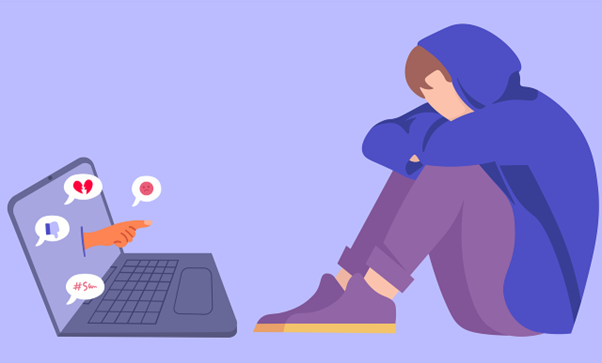Education and quarantine: experiences of the covid pandemic

There is no doubt that Covid-19 had seriously impacted the lives of children at school. A change from classrooms to laptop screens had made school life complicated and isolating. School children’s learning had been affected as well as our wellbeing due to the covid lockdown.
In March of 2020, I was in Year 7 when lockdown was announced. Earlier, I was told by a teacher not to worry and that it would not last for long. But, a month into the quarantine showed that I would struggle learning educational content without the presence of my teachers. I would also struggle socially and emotionally without the presence of my friends and peers.
Platforms like Zoom and Google classroom were used for lessons and communication. However, I saw that only a few students actively participated, while some did not even attend and others were displaying behavioural outbursts such as interrupting the lesson and blasting audios into their laptop speakers. As a result, text interaction in video calls was used between my peers and teachers. This lacked real human interaction such as orally speaking to someone, being able to observe body language or just having the comfort of a person’s presence.
Sometimes I found tasks tedious and avoided doing them. Consequences were not as harsh as they were in school because teachers could not really do anything but email parents. I found that this lack of teacher intervention made school work less important to me.
The lack of socialisation was difficult to digest. Without the support of teachers’ guidance in learning, support counsellors regarding mental health and friendships left me feeling isolated most of the time. This had even affected how I socialised after lockdown. I felt that the quarantine had stolen a big part of my growth as a social being, as I was so familiar with texting and calling, instead of having actual face-to-face conversations with peers around me.
However, the prominent use of technology had its positive impacts on my education, as it introduced useful platforms like quizlet, oak national academy, corbett maths and century path which provided useful resources that included videos and interactive tasks. I remember using quizlet for a Spanish class and also enjoying it because everyone was actually participating and having fun. Attempts were made to make online learning more like school, such as Joe Wicks’s online PE lessons and online assemblies, in which teachers and students joined together.
After the first lockdown, school reopened in 2021 and I was in Year 8. Being back in school provided the comfort of being able to socialise again with peers, but also being able to ask teachers for support when struggling in class.
We had to undergo covid testing, practice social distancing, wear face masks and were separated into ‘bubbles’ - where we were restricted from moving around the school building and mixing with peers in other years. We were on the same floor, same classroom and same seating plan for a couple of months. Classrooms felt claustrophobic and the lack of outdoor air exacerbated this effect.
The pandemic affected my first years of secondary education and mostly interfered with my wellbeing since there was a lack of social interactions within school. However, I also think more could have been done to make my life and other students' lives better, such as involving parents more in their children’s education. Also, creating a stronger community within the school and also providing easier access to help, for those who were struggling mentally or emotionally.
Tanisha, Year 12 student
Meet the Authors
Meet the Author











.png)



